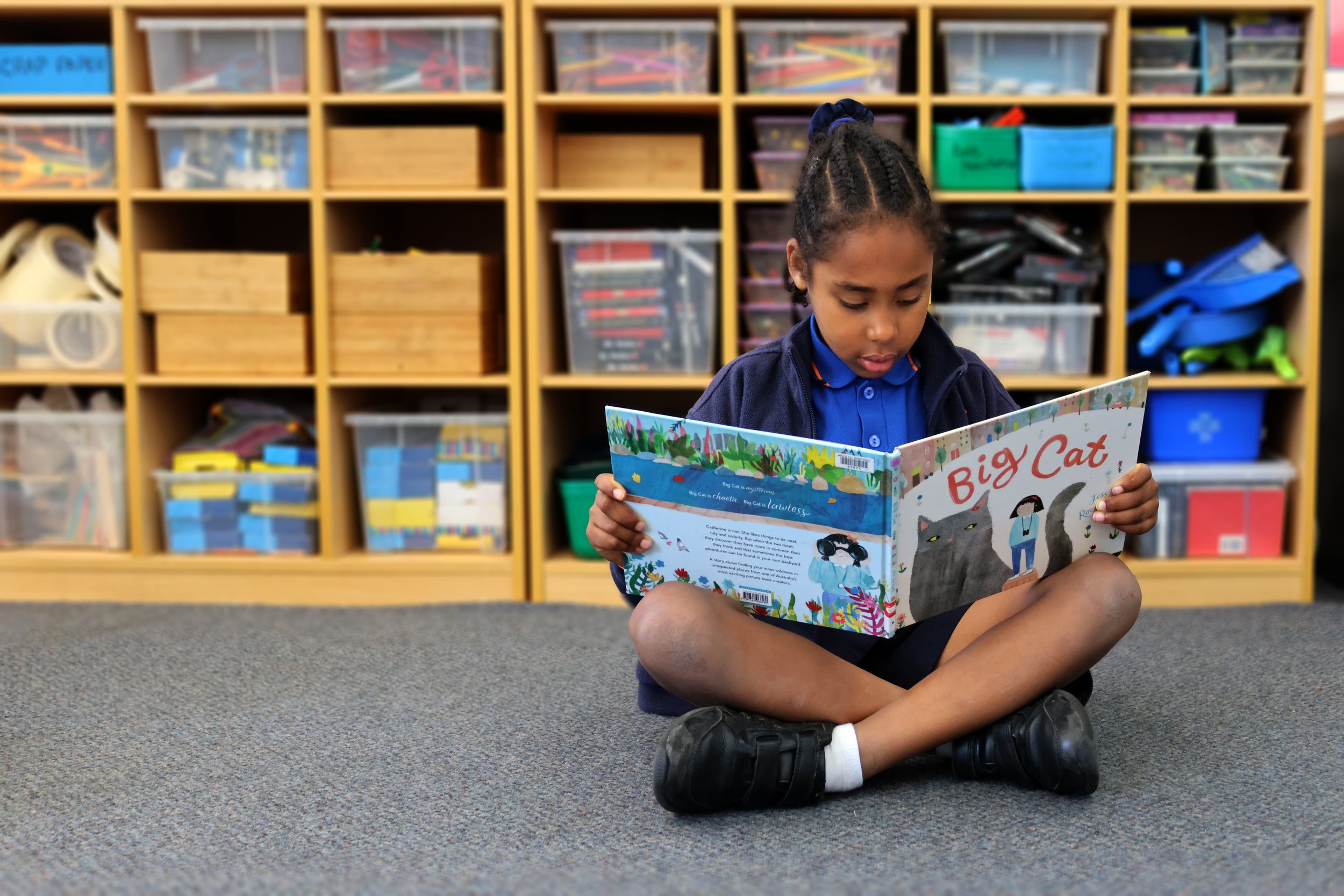Literacy at WHPS
Reading
Our approach to reading focusses on developing students decoding, fluency and comprehension skills. We use explicit instruction of phonics to develop our students’ ability to decode words in the English language and read words accurately. Fluency behaviours are modelled and practised to increase students’ capacity to read texts with effective phrasing, expression and speed. Students are also exposed to a range of strategies to develop their literal, inferential and evaluative comprehension. This aids their ability to understand information directly stated in a text (literal), understand implied information (inferential) and analyse and critique features of a text (evaluative). The common teaching practices where these skills are developed are through one-to-one conferencing, guided reading and reciprocal reading.
Writing
To develop students’ written communication skills we use the VOICES framework (6 + 1 Traits of Writing). VOICES is an acronym for: Voice, Organisation, Ideas, Conventions, Excellent Word Choice and Sentence Fluency. These are all traits found in quality writing. Using this framework, students are explicitly taught the different writing traits and strive to incorporate these techniques into their own written texts.
In addition to this, students compose a range of imaginative, informative and persuasive text types. This improves their ability to write for different purposes and audiences. They learn specific text structures and language features associated with these texts and work through the Writing Process (Generate Ideas, Plan, Draft, Revise, Edit and Publish) to help them create their written pieces.
Speaking and Listening
We focus on developing students’ speaking and listening skills across all areas of the curriculum. Students have the opportunity to participate in discussions at a range of levels, including whole class, small group and one-to-one discussions in all subject areas. We promote students to use speaking opportunities to clearly articulate their thinking, which enhances their understanding of learnt concepts. We encourage students to be active listeners, clarifying content when required and asking further questions, to augment more meaningful conversations with their peers and teachers.
In addition to this, students are explicitly taught techniques that enhance their public speaking skills. They deliver a range of oral presentations over the course of their primary school years to develop confidence speaking to a wide range of audiences.




![organiser_logo_1_5_1_1_1[1].jpg](https://images.squarespace-cdn.com/content/v1/58acc3a559cc680d45f8c059/1493293523812-D7FLNXCRXS71FFA27M4L/organiser_logo_1_5_1_1_1%5B1%5D.jpg)
![educationstate[1].png](https://images.squarespace-cdn.com/content/v1/58acc3a559cc680d45f8c059/1493294103416-050J2Y7APNUPSGC4L071/educationstate%5B1%5D.png)

